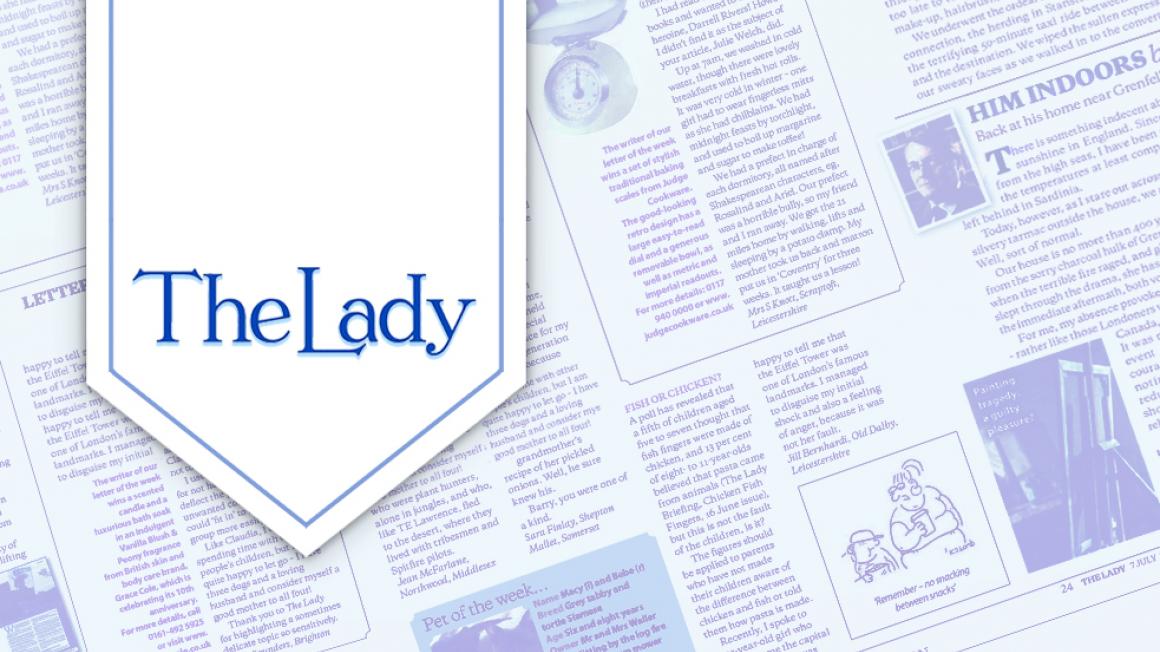The Lady Guide to Modern Manners: 31 August
I hear on the Today programme that we now text more frequently than we phone each other. Can you clarify for me, please: what subjects is it unacceptable to address in a text?
Ian Williams, Usk
Dear Ian,
How very nice to hear from you again! Thank you for your continuing interest in The Lady.
This is a fraught issue. As so often where technology is involved, as soon as the rules seem to settle, everything changes and we have to start again. Some might say this is true of modern manners in general.
The classic instance is condoling by text. Five years ago this seemed unthinkable. But more and more people have taken to announcing the passing of loved ones by text so it seems perfectly natural to reply by the same means.
The logic is clear. Texting is simply the best means of conveying sad news. Otherwise, relatives, already inundated with funeral arrangements etc, have to phone everyone in the deceased's address book, which might take days. Perhaps also, they don't feel that much like talking. All the same, your reply by text should not be a substitute for a proper letter of condolence, of some length, sent through the post. Should invitations be issued by text? On the whole yes, although some might think this too casual. There's some idea that email is more gracious, but is this rational? We assume that texting, carried out by telephone, is somehow the equivalent of a telegram, whereas email is more like a letter. But really aren't they about the same, if not in method then in impact?
It is possible that the ease and convenience that texting offers has generated more social life, so let's not be too down on it. Only invitations to very special events (weddings, 'landmark' birthdays) are sent by post these days.
Thanking by text is another matter; only suitable for people you know well and even so, write full sentences and quite a few of them. Texting is otherwise used for brief, often practical messages: where to meet up? What time? Directions etc. But do read through before sending. Has predictive text scrambled your meaning? Have you put the right bus number?
Cowardly and evasive use of texting includes ending a relationship by text, sacking by text and conducting a feud by text. As with email, modern technology, apparently enabling communication, provides opportunities for disgraceful and weak behaviour.
No matter how hard you try, texting will always have, if not a curt, then a brief, feel. It might anyway be a more efficient use of time, where you have something complicated to convey, or an awkward situation to negotiate, to actually speak to the person.
Please send your questions to Thomas. blaikie@lady.co.uk or write to him at The Lady, 3940 Bedford Street, London WC2E 9ER.
WHAT TO DO ABOUT... the unexpected greeting?
An acquaintance sends you a birthday card out of the blue. What to do?
Lillian Chase writes from Bath... 'I asked her how she knew when my birthday was, but she wouldn't say. I thought it might be a one-off, but this year she again sent me a card. My question is, should I try and find out the date of her birthday and start sending her cards?'
My father always worried himself sick if, on 24 December – when it was too late to do anything about it – he got a Christmas card from someone he'd omitted to send one to. My mother used to say, 'People don't send cards to get one back.'
It's true: real generosity does not count the cost. I'm sure this kind lady is not trying to screw a card out of you. All the same, I can understand that you might feel awkward and wonder how to respond.
To simply return the compliment might look a little contrived and she must realise you don't know when her birthday is. Maybe you could find some other opportunity, other than Christmas when everyone's doing it, to give her a card – at Easter or New Year?



